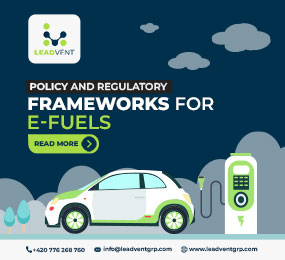The Increasing Popularity of E-Fuels
E-fuels, also known as power-to-X fuels or synthetic fuels are the current buzz in the energy industry. Referred to as e-fuels, they are made from renewable sources like wind and solar power that offer an environmentally friendly choice when compared to traditional fossil fuels. In this process, renewable electricity is converted into liquid or gaseous fuel forms that can be used across various industries such as transportation, industry, and heating.
Importance of Investing in E-Fuels
Ecological Benefit
One key reason why investing in e-fuels is a cost-effective idea is because of their environmental advantage. Conventional fuels contain significant amounts of greenhouse gases whereas e-fuels are generated by using renewable energy with almost no carbon footprints. This aligns well with global efforts towards minimizing climate change and achieving carbon neutrality.
Economic Side
There is a huge potential for growth within the e-fuel sector due to an increasing demand for sustainable energy solutions. The governments are planning to impose strict emissions standards globally while at the same time encouraging the usage of renewables; hence the market for e-fuel should expand.
Technological Progression
The production and utilization frontiers for e-fuels have been experiencing technological advancements. Developments on power-to-gas technologies together with those relating to power-to-liquid chemistry, as well as progress on carbon capture utilization storage (CCUS), have increased their viability and cost-effectiveness.
Understanding E-Fuel Market
Trends in the Market
There has been rapid innovation and development in the e-fuel market. According to some recent reports, it has been estimated that by 2028, there will be a $1.55 billion global market for e-fuel which would increase at a CAGR of 23.5% between 2021 and 2028. The driving forces behind this growth include greater investments in renewable energy projects combined with country-level supportive policies.
Key Players
Several companies have taken the lead in e-fuel space. Firms such as Audi, Siemens and Shell are putting significant financial resources into the development of e-fuel technologies and infrastructures. Besides advancing the production of this type of fuel, these industry giants are also involved in scaling up technology through partnerships as well as collaborations.
E-Fuel Investments Case Studies
Audi’s Synthetic Fuel Initiative
Audi has been a trailblazer in the e-fuel market with its e-diesel and e-gas initiatives. The automaker has invested in pilot plants for producing synthetic fuels made from CO2 and renewable energy. These efforts aim to transform the automotive sector by providing sustainable fuel options.
Siemens’ Power-to-X Project
Siemens is another major player focused on power-to-X technology, which is used to create e-fuels. The company has built a pilot plant in Denmark that uses wind energy to produce hydrogen that can be further converted into synthetic fuels. Through its project, Siemens shows how feasible and scalable it is to adopt this approach for making e-fuels.
E-Fuels Across Different Sectors
Transportation
The transportation sector can be significantly decarbonized by using e-fuels. Existing internal combustion engines can use them, thus they represent a viable option for reducing emissions from vehicles such as cars, trucks, and planes without requiring any infrastructure upgrades.
Industry
In industrial application areas i.e., where high thermal energies are needed, the substitution of fossil fuels with fuels is possible. Industries like cement manufacturing, steel manufacturing or chemical synthesis find electrification difficult when it comes to heating their processes.
Heating
Apart from residential and commercial heating purposes, efuels could be an alternative to natural gas among other fossil fuels.
FAQs About E-Fuels
Q1: Are e-fuels commercially viable?
Technological advancements and supportive government policies make e-fuels more commercially viable. Although these e-fuels are currently higher priced compared to ordinary fuel, it is anticipated that their price will drop as economies of scale and innovation are achieved.
Q2: How do e-fuels compare to electric vehicles (EVs)?
To reduce carbon emissions, both e-fuels and EVs are important. Since e-fuels go well with existing internal combustion engines and infrastructure, they can be looked at as a complementary solution for EVs, particularly in sectors where electrification is challenging.
Q3: What are the challenges in the e-fuel sector?
The main barriers to entry for e-fuels involve relatively high costs of production, limited infrastructure availability and significant R&D investment needs. Still, these issues have been resolved with advancements in technology and policy support thus establishing them as promising projects.
Conclusion
Investing in the e-fuel sector offers a significant opportunity in the sustainable energy transition, with the potential to reduce carbon emissions and a growing market presence. As an investor, you can make informed decisions if you understand market trends including key players. By attending this conference, you will get insights from professionals who will provide suggestions on how to run your business successfully by adopting new strategies that enable you to transform it into an environment-friendly one.












